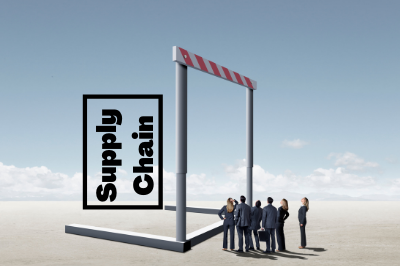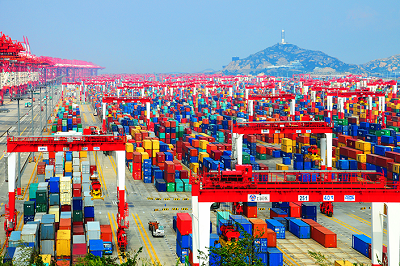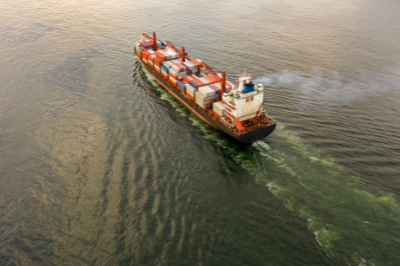

Founder: Turnaround Talk
Those hoping for a speedy resolution to the global supply chain crisis have been severely disappointed with fresh lockdowns being imposed in China and the Ukraine war which is having its own significant impact on the crisis.
This comes at a time when the rest of the world is hoping for an accelerated recovery form the Covid-19 Pandemic which has had a significant economic impact worldwide. Even South Africa is awakening from its slumber and making plans to implement economic reform.
Do we need to go back to the drawing board and rethink supply chain diversification? Here is how the crisis is currently impacting companies.
Port delays are getting worse in Shanghai
A CNN article points out that China’s strict lockdown in Shanghai is heaping even more pressure on global supply chains.
On Friday, Shanghai extended restrictions in many parts of the city, which is home to China’s financial hub and one of the world’s busiest ports. The Port of Shanghai had already been suffering from major holdups, and the extension may worsen congestion and increase transportation costs further, experts said.
The coastal city imposed a two-phase lockdown on its 25 million residents earlier this week. Authorities placed the western part of the city under lockdown on Friday and extended an existing lockdown in eastern neighbourhoods with positive cases by up to nine days.
These restrictions have caused major delays at Shanghai port, which is in the eastern part of the city and was already congested. It is the world’s busiest container port, handling more than four times the volume seen at the Port of Los Angeles in 2021, according to data from both cities’ port authorities.
VesselsValue, a global shipping data provider, said the number of ships waiting to load or discharge at Shanghai’s port had skyrocketed to more than 300 this week, a near five fold increase in the past two and half weeks.
“Congestion at Shanghai usually worsens at this time of year. However, the recent increase is far higher than both last year and normal seasonal levels,” the firm said in a statement on Tuesday.
The article adds that it remains unclear what impact the lockdown will have on the port’s vessel backlog, the firm said. But it suggested that supply chain managers and analysts around the world “start planning for knock on effects.”

Photo By: IC
Higher transportation costs
The CNN article points out that Maersk, one of the world’s largest container shipping companies, also said the Shanghai lockdown can cause transportation delays and higher costs.
“Trucking service in and out [of] Shanghai will be severely impacted by 30% due to a full lockdown on Shanghai’s Pudong and Puxi areas,” Maersk said in an advisory to clients on Monday. Shanghai is separated into two parts, Pudong and Puxi, by the Huangpu River.
“Consequently, there will be longer delivery time and a possible rise in transport costs,” it added.
The city’s government, meanwhile, has said that freight operations will remain normal under the lockdown.
Shanghai International Port Group, which runs the port, said last month that it would implement a “closed-loop system” that requires employees to stay in specific areas and adhere to certain protocols to prevent the spread of coronavirus.
However, due to the travel restrictions, extended waits at checkpoints, coronavirus test requirements, and potential quarantine upon return, many truck drivers are struggling to get the cargo containers delivered in and out of the port on time, according to state-controlled media outlet The Paper.
A global issue
The CNN article adds that congestion in Shanghai is bad news for consumers and companies around the world.
“The citywide lockdown in Shanghai is a setback to global supply chains already stretched by geopolitical tensions,” wrote Bansi Madhavani, senior economist for ANZ Research, in a report on Friday.
Global supply chains have been strained for months due to the Covid-19 pandemic and Russia’s invasion of Ukraine.
Although the Shanghai port remains operational, activities such as warehousing and staffing will be affected, causing delays, he said, adding that cross-country transportation may be hindered too.
“These restrictions could … send freight rates soaring,” Madhavani said.
Nomura analysts also expect “additional shipping delays, port -congestions and logistics undercapacity” as Shanghai remains in lockdown.
“Markets so far have underestimated the severity of the situation in China,” Nomura analysts said Thursday in a research note. “In the next couple of months, we expect global investors to better reflect these shocks in their valuations of various asset classes.”

Photo By: Canva
A nail in the coffin of over-globalized supply chains
BRINK spoke to Mark Millar, the author of Global Supply Chain Ecosystems and a supply chain expert based in Hong Kong, and asked which supply chains are being most impacted by the crisis.
Unfortunately, this is another massive disruption for today’s globalized supply chains, on top of two years of COVID-induced supply chain chaos, from which many businesses (and economies) have still not recovered.
There is enormous uncertainty as to whether this crisis could be over by the end of the month, whether it could drag on for years, or worst-case scenario, could trigger a direct military conflict between the North Atlantic Treaty Organization (NATO) and Russia.
Whichever the outcome, I think it is another nail in the coffin of our modern-day over-globalized supply chains.
The cumulative disruptions over the last five years from ever-increasing costs in Asia, geopolitical tensions and trade tariffs, the pandemic’s turbulence in global shipping and now the military conflict in Europe have exposed the profound interdependencies and inherent vulnerabilities in globalized supply chains.
BRINK: Are there any critical products that come from Russia and Ukraine (besides oil and gas) that will be disrupted?
MILLAR: In addition to gas and oil, Russia’s top exports include coal, iron, platinum, raw aluminium, sawn wood and copper. So many global commodities markets will be squeezed, and we can foresee some shortages of raw materials.
Food supplies will be impacted
As both countries are major exporters of agricultural products, we can also expect global food supply chains to be impacted.
Russia exports over $6 billion of wheat annually and is a major producer of vast amounts of the essential raw ingredients for the fertilizer products that are used in produce grown around the world.
Meanwhile in Ukraine, two-thirds of its GDP relate to international trade, the foundation of which is a strong agricultural sector. Fifteen percent of global grain exports come from Ukraine, as well as cereals, animal and vegetable oils, and seed oils, together representing 35% of Ukraine’s exports.
A further quarter of Ukraine’s exports are iron ore and steel, including refined electrical machinery, equipment and other mechanical appliances.
BRINK: Do you think this crisis is likely to cause companies to rethink their supply chains and develop suppliers nearer to home?
MILLAR: Absolutely. As a result of COVID, many companies were already re-evaluating their supply chains, exploring options for near-shoring and/or reshoring of their sourcing and production closer to home.
However, reconfiguring and relocating your global supply chain is much easier said than done.



